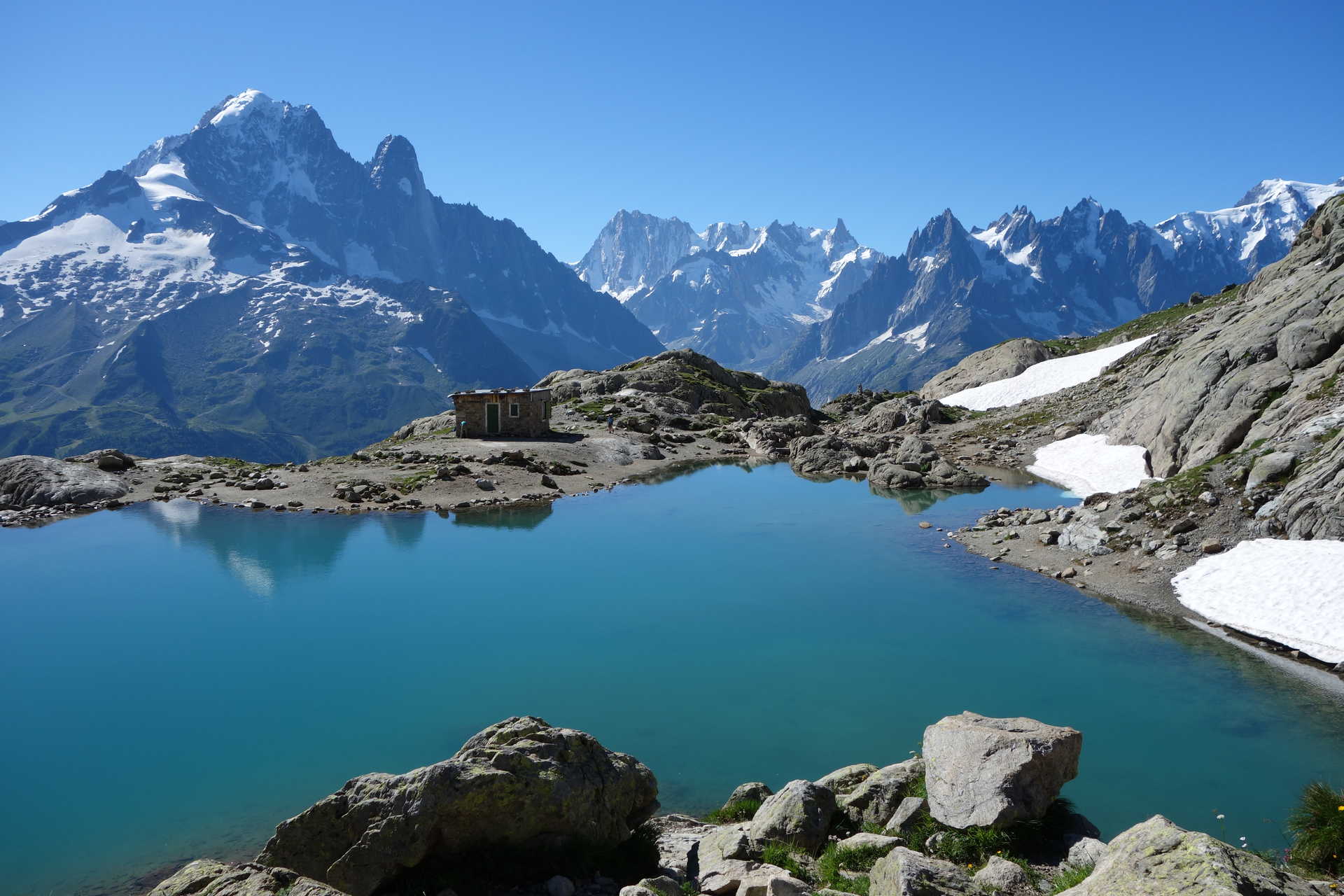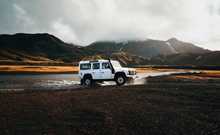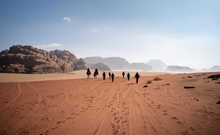Classic Tour du Mont Blanc - Lite
- Kandoo Lite
- Trekking

Contact
our UK team


Arrive in the beautiful mountain town of Chamonix and make your own way to the hotel. You can check in at your hotel and spend some time exploring the town. There are many typical Savoyard restaurants close to your hotel where you can sample some alpine specialties, such as cheese fondue, tartiflette or raclette. A pre-trek briefing will be held at your hotel in the evening.
After breakfast, we will catch the bus or train to Les Houches where we will take the Bellevue cable car. From the top cable car station there is a beautiful panoramic view of Mont Blanc , the Aiguilles Rouges, the Fiz chain and the Aravis. We then begin our trek in earnest, following a 1800m-high balcony that leads us to the bottom of the Bionnassay glacier. Crossing the Col de Tricot (2120m) we will descend to the village of Les Contamines-Montjoie where we will spend the night.
Today begins with a leisurely trek along the river to the beautiful baroque Church of Notre Dame de la Gorge, which marks the start of the mountain trail. A long and steep ascent leads us to the Col de Bonhomme (2329m). This pass has been used for centuries by shepherds and their herds, armies and soldiers, pilgrims and hawkers – and now the hikers of the Tour du Mont Blanc!
At the Col du Croix du Bonhomme, we will take the path to La Vallee des Glaciers through herds of Tarine and Abondance breeds. The milk from these cows is used to make many cheeses, especially the Beaufort and Abondance which are local specialties that you will be able to sample at tonight's refuge.
Today we have a short transfer to the start of our trek in La Ville des Glaciers. We set out to cross our first border, from France into Italy, via the Col de la Seigne (2516m), which lies on the watershed between the Mediterranean and the Adriatic. The view from here is breath-taking, with a series of snowy peaks appearing in front of the Italian side of ‘Monte Bianco’. After lunch, we descend into the Val Veny and make our way to Courmayeur, where we will hopefully be in time to grab an ice cream before continuing on to our accommodation for the night.
If we didn't get a chance yesterday, this morning we will take the bus down to the charming town of Courmayeur where we will have some free time to enjoy a delicious Italian coffee. We then hike up from the town and continue along the Val Ferret in the shadow of the impressive Grandes Jorasses. After passing through La Vachey, we head to one of the more remote refuges on the trail itself for our final night on the Italian side.
Please note: there will be no access to your duffel bags this night, as vehicles cannot reach the refuges so you will need to pack your overnight essentials into your daypack — a perfect opportunity to fully immerse yourself in unspoiled nature.
Time to lace up those boots and head into Switzerland! Today we will continue to ascend along the Val Ferret to reach the Grand Col de Ferret (2537m) where we will cross the border. As we head up the pass we can admire the Glacier de Pré de Bard and Mount Dolent, the summit of which is shared by France, Italy and Switzerland. The Grand Ferret is an ancient pass connecting the Aosta Valley of Italy to the Valais Canton of Switzerland. From the village of Ferret we will catch a local bus to Champex, a quaint lakeside village. In Champex you will be able to stock-up on snacks if required and visit shops selling local delicacies before walking a little further to tonight's accommodation.
From Champex there are two possible options for today's route. The Bovine way takes the main Tour du Mont Blanc route through the high meadows where the beautiful Herens cows spend their summer months. For the more adventurous, the Fenetre d'Arpette is a possible alternative. Your guide will discuss these with the group before making a final decision. Whichever route you take, you will experience panoramic views of the surrounding Rhône valley, the Coude du Rhône and the Great Combins massif before descending into the small village village of Trient. From here, a private vehicle will take us through the Montets pass, crossing back into France, to our final destination of Argentière.
On this final day of our trek, we will discover the Aiguilles Rouges massif and reserve, facing Mont Blanc across the Chamonix valley. We will trek up to the Cheserys Lakes and on to Lac Blanc, from where we can enjoy a breath-taking view of Mont Blanc and the Mer de Glace while enjoying our picnic lunch. On the way we can often see ibex, chamois and marmots. We head down on a balcony trail, crossing La Flagère and Le Brévent to reach Chamonix. Time to say goodbye to the group and continue on our onwards travels.
The Tour du Mont Blanc is not to be under estimated, there is a lot of steep ascent and descent on this trek, so your legs will be getting a good workout. Yet, whilst a high level of fitness will make the days a lot easier it by no means requires super human fitness. A solid training plan will allow you to better prepare for the hikes and enjoy yourself when you're on the trail. You will need to reach particular points on the trail each night so you may find the pace of walking to be a little faster than on Kilimanjaro, for example. This is by no means a sprint, however a good level of fitness will ensure you have a positive experience.
Trekking poles are also a lifesaver, especially on the steep Alpine passes! If you are comfortable walking for 6-7 hours with an ascent of 1000m over consecutive days then you are certainly fit enough to succeed on the Tour. Think of it as climbing Snowdon or Ben Nevis every day for six days! If you can do this then there is no reason why you can't complete the entire Tour du Mont Blanc. We find that all successful hikers share a real Kandoo attitude and that means high levels of grit and determination.
This trip is on a full board basis (except for the first night in Chamonix). For your evening meal in Chamonix, there is a wide range of local restaurants for you to sample. If you have a dietary requirement or are a vegetarian then just let us know when you book so that we can plan suitable lunch menus.
The refuges provide hearty, traditional and generous meals. Drinks are not included with dinner, so please make sure you have some Euros and Swiss Francs with you. Refuges do not normally accept card payments.
Packed lunches will be produced by your guide and include local meats and cheeses, crusty bread and fresh seasonal vegetables. The lunch items will be shared between all of the group for carrying each day. Remember to bring your favourite snacks (cereal or energy bars, dried fruits, chocolate) with you to keep you going through the day.
Accommodation in Chamonix will be in a 3-star hotel in twin rooms. You will stay in Chamonix on the first night of the trip. Please note that your evening meal is not included when you are in Chamonix.
The mountain refuges we use are authentic huts with catering facilities and shared mixed-sex dormitory rooms of anywhere between 4-16 beds: blankets, pillows and mattresses are provided but you will need to bring a sleeping bag liner. Most refuges have running water and showers, but in more remote refuges, facilities will be more basic and hot water may be limited. You will only need very basic toiletries. On arrival at the huts, you will be expected to take off your boots and use the indoor shoes that the refuge provides (these are often crocs).
| From | To | Price | Availability | Book | Enquire |
|---|---|---|---|---|---|
| 13/06/2026 | 20/06/2026 | £1,999 $2,599 |
Guaranteed
|
Book now | Enquire now |
| 11/07/2026 | 18/07/2026 | £1,999 $2,599 |
Sold out
|
Sold out | Enquire now |
| 15/08/2026 | 22/08/2026 | £1,999 $2,599 |
Available
|
Book now | Enquire now |
| 13/06/2027 | 20/06/2027 | £1,999 $2,599 |
Available
|
Book now | Enquire now |
| 11/07/2027 | 18/07/2027 | £1,999 $2,599 |
Guaranteed
|
Book now | Enquire now |
| 15/08/2027 | 22/08/2027 | £1,999 $2,599 |
Available
|
Book now | Enquire now |
| 05/09/2027 | 12/09/2027 | £1,999 $2,599 |
Available
|
Book now | Enquire now |
Want to ask us a question or book a private trip? Don't hesitate to contact us!
Contact us